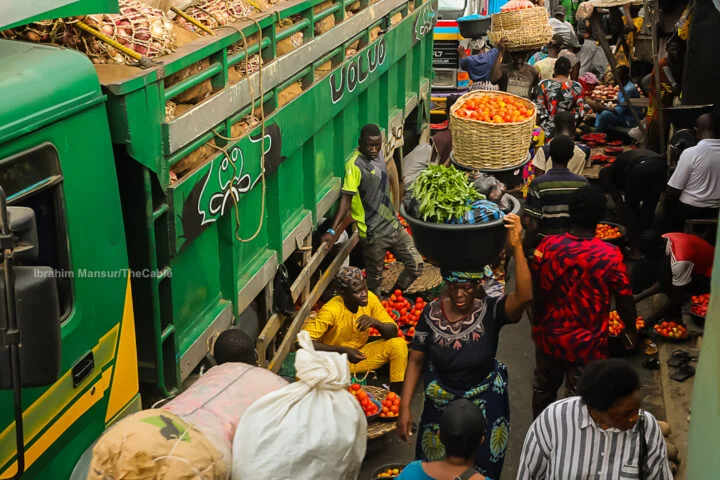The National Bureau of Statistics reported Nigeria’s inflation rate fell from 34.8% in December 2024 to 24.48% in January 2025.
This decline follows the rebasing of the Consumer Price Index, implemented to reflect economic structural changes and current realities.
The NBS stated in its latest CPI report that inflation increased by 18.12% from 29.9% recorded in January 2024.
Adeyemi Adeniran, Statistician-General, previously announced plans to rebase GDP and CPI to align with Nigeria’s evolving economic conditions.
On January 9, the NBS confirmed 2019 as the base year due to the availability of comprehensive economic administrative data.

Adeniran stated the all-items index, measuring headline inflation, stood at 110.7 in January 2025, reflecting a 24.48% inflation rate.
He attributed this rise mainly to increasing costs in food, non-alcoholic beverages, restaurants, accommodation services, and transportation sectors.
The Food Index for January 2025 reached 110.03, leading to a 26.08% year-on-year inflation rate in the food sector.
The Core Index, excluding farm produce and energy, stood at 110.7, resulting in a core inflation rate of 22.59%.
Urban inflation stood at 26.09%, while rural inflation was recorded at 22.15%, reflecting differences across Nigeria’s economic regions.
To enhance CPI reporting, Adeniran announced the NBS will introduce new indices for more accurate economic policymaking and analysis.
These special indices include the Farm Produce Index, Energy Index, Services Index, Goods Index, and Imported Food Index.



